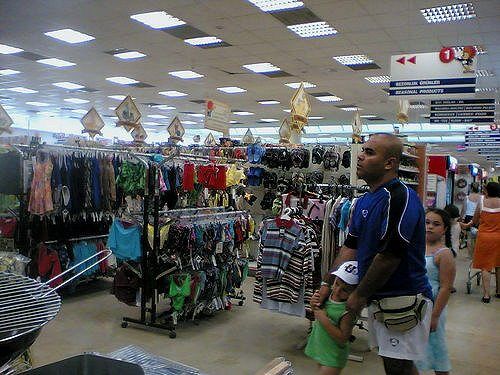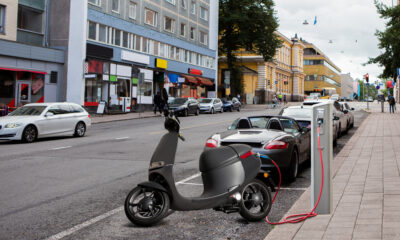

News
Black Friday Can Be Made Greener
To make this Black Friday (the bacchanalian festival of commercialism and sharp-elbowed over consumption) greener: lock your door, turn off your phone and purchase absolutely nothing.
Well done, your carbon footprint will only be the energy you use to power the TV, which will be near zero if you use or switch to Good Energy.
Alternatively, take a look at our Affiliate Directory [http://blueandgreentomorrow.com/magazines/affiliate-directory-march-2015/] with lots of partners who are making a positive difference and supporting Blue & Green.
Finally, if those two options fail you and you just must have something shiny and new, heed the following practical consumer advice from Sarah Pennells, founder of the unrivalled money website for women, SavvyWoman.co.uk:
1. Do your research before Black Friday so you know exactly what you’re looking for. Do you want a new TV – if so, what features should it have? Some shops use Black Friday as a chance to offload old or unpopular stock.
2. Ignore the hype and make sure you’re really getting a bargain. Shopping comparison sites such as Idealo, let you track an item’s price history across a range of retailers. Camelcamelcamel lets you do the same for Amazon.
3. Don’t buy because it’s cheap! Just because something has money off the price doesn’t mean it’s a good deal. If you don’t need it, don’t really want it or you can’t afford it, it’s just a waste of money.
4. Know your rights. If you order something online, you have 14 days from the day after it arrives to cancel the sale and get a full refund and another 14 days to return it. That’s useful if you buy something and change your mind.
5. Take a step back from the ‘buy now’ frenzy! Shops use a lot of clever psychological tricks on Black Friday and one of them is to get us to buy in a hurry. It’s one of the oldest sales tricks in the book.
6. Watch out for fake websites. Just because it ends in .co.uk doesn’t mean it’s based in the UK and sites can have names that are very similar to the real thing. If a website or retailer insists you pay by direct transfer (such as an online or mobile payment), be aware that your bank won’t give you your money back if the seller turns out to be a fraudster or if you’ve bought something that’s fake.


 Features11 months ago
Features11 months agoEco-Friendly Cryptocurrencies: Sustainable Investment Choices

 Energy11 months ago
Energy11 months agoThe Growing Role of Solar Panels in Ireland’s Energy Future

 Energy10 months ago
Energy10 months agoGrowth of Solar Power in Dublin: A Sustainable Revolution

 Energy10 months ago
Energy10 months agoRenewable Energy Adoption Can Combat Climate Change




























